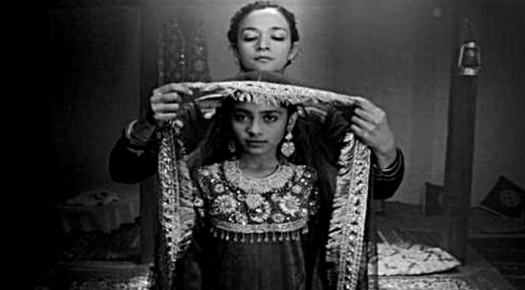
Lawmakers in Pakistan recently withdrew a bill imposing tougher punishments on those who practice child marriage after a religious body scuttled the government’s plans by branding the proposition as blasphemous and un-Islamic. The proposition, which would have also allowed the legal age of marriages for females to be raised from 16 years to 18 years, sought ‘rigorous’ penalties up to two years in prison for those who conduct such ceremonies; which are still rather common in certain parts of Pakistan.
Marvi Memon, member of the ruling Pakistan Muslim League, made the proposition in the lower house to amend existing legislations related to child marriage, but she was compelled to withdraw the bill after a parliamentary committee on religious affairs rejected it. Reportedly a member of Council of Islamic Ideology described the proposed amendment as blasphemous and un-Islamic during the committee meeting.
The Council of Islamic Ideology was set up in 1962 to help the parliament decide how compatible the country’s laws are with Sharia. Its suggestions are non-binding, as it attracted widespread criticism in the past for other recommendations. In 2013, the council suggested that DNA should be considered inadmissible evidence in rape cases, urging instead for an Islamic law to be revived that makes it compulsory for a survivor to arrange four witnesses to support her claims.
“Marvi wanted deletion of the word 'simple' punishment for those involved in arranging child marriages to 'rigorous' or 'two-year' punishment in the actual legislation,” said the parliamentary source, who did not want to be identified due to the sensitivity of the matter. “Marvi also wanted the age for girls' marriage to be raised from 16 years to 18 years, which does not in any way violate the teachings of Islam.”
The existing law in Pakistan requires a woman to be at least 16 years old and a man to be 18 for them to be married. However, religious scholars in Pakistan believe that this law is not in keeping with Islamic teachings. They insist that there is no specific age limit for a marriage to take place, as individuals can do so as soon as they reach puberty and puberty cannot be defined by age.
Human rights activists condemned the rejection of bill. “It is a pity that the committee came under the pressure of the council's unjust ruling,” leading human rights activist I A Rehman said.
Calling the decision absurd and stressing that it would only serve as a setback for those trying to safeguard human rights in Pakistan, Rehman warned that the council was digging its own grave and it would soon cause its own disbandment.
Girls Not Brides, an international coalition of civil society organizations condemning child marriage, said that the council is nothing but an obstacle in the face of social reform.
Several provinces in Pakistan have pushed for legislation banning child marriage but the implementation of such laws has proven to be easier in theory than in the real world. Even though some laws concerning child marriage are already in place, an estimated 20 percent of girls in Pakistan are married off before they turn even 18.
Photo Credits: Entertainment Today
